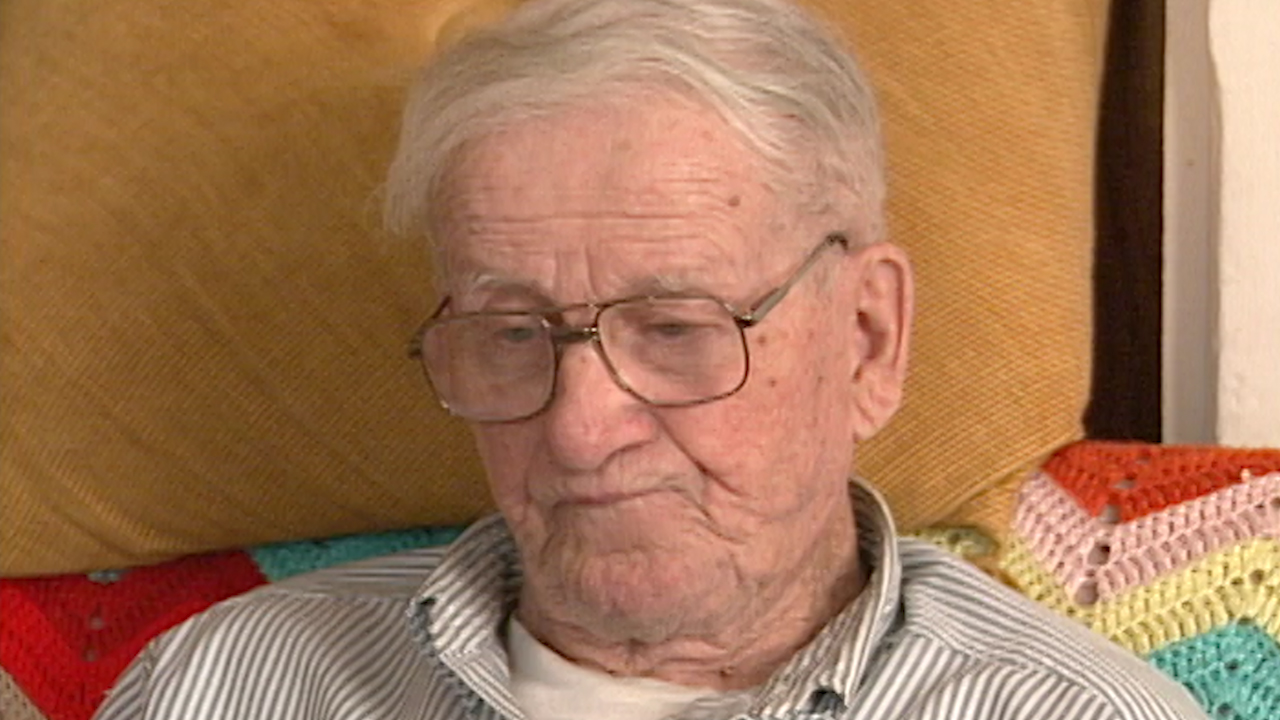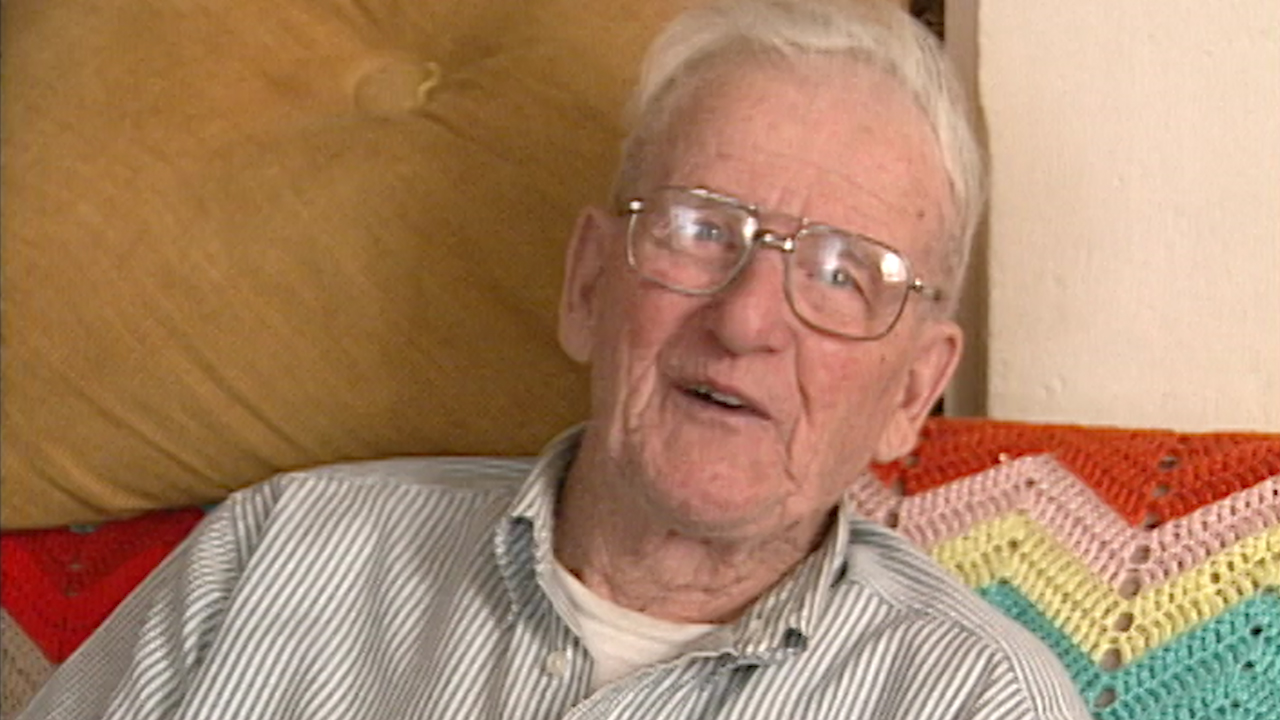Return to Civilian Life
Heroes Remember
Return to Civilian Life
Transcript
Interviewer: What do you recall about the end of the war?
Do you remember your reaction?
Yeah, yeah. I was pretty, I was pretty, pretty pleased,
pretty pleased, pretty pleased. I done, I went along with a lot
of them, a lot of them, a lot of them said, "Well, we just,
we just enlisted for the end of the war see." That's all we're
doing. So they didn't, they wouldn't, they wouldn't even take
orders after that. From the, from the, so they put us, they put
them put us all aboard a big ship, a naval ship, a battle ship
and kept us there. Of course, we didn't make any, there wasn't
no trouble but, but they wouldn't take, they wouldn't if they
went to give them an order to clean ship or anything,
they wouldn't, wouldn't do it.
Interviewer: This is some of the men that were on your ship?
Yeah some... in the, all the from across this was, you know.
They figured that they were through when the, when the war was
ended, see. But hell, they had to get, they couldn't bring them
all home at once, see. Some of them had to wait a long while.
We were lucky we got, we got home pretty,
not long after the, it was over.
Interviewer: How long was it? When did you get back to Canada?
I got back in, in March. I know it was in March... in 20 because
I came to Hunter River. I come to (inaudible) of course I was
two or three days in Halifax, but I never sent them word at all
that I was coming, you know, and I got, I got my discharge in
Halifax. That's where I got and I come home, I come to
Hunter River and get off the train in Hunter River
and it's winter. It was in the winter time.
There's snow the sleigh's was going, the horse and sleighs.
I walked from Hunter River down here, down to here.
I come in the door and they didn't know I was coming.
Interviewer: Did they recognize you?
Oh yeah. Oh yeah. Oh yeah. My mother was here. My dad wasn't
in the house at the time. He was outside, but my mother
knew me right away she knew, oh yeah.
Interviewer: When you came back, what was the word from your
older brothers? Had, had they survived the war?
Oh Yeah. Yeah.
Interviewer: They all came home?
They all come home. One of them, one of them, my brother George,
he was in the artillery. He was, he was with a gun crew.
There was, there was nine of them and they had one of those big
guns they were in charge of and they were... and this, this
attack this, what was it? Vimy Ridge or some of them battles.
They, they were firing this gun so much, so long, without,
that it got so hot, that they'd fired it once too often that it
blew to pieces and it killed everyone of them that was there,
but my brother was the only one of them that was left standing,
was George. So, what do you call that?
Interviewer: It's called luck.
What? Good luck or yes, it was something. They had just as good
a chance to get him as the other fellows, but he was left.
He was the only one that was left of the crew and that was,
you could blame that on the officers that kept them firing the
gun until it got so hot it that it burst to pieces.
Description
Mr. Stevenson tells of his reaction as the war ended and of his journey home to Canada and Prince Edward Island.
Lorne Stevenson
Lorne Stevenson was born on a farm in Wheatley River, Prince Edward Island on June 23, 1898. He received his early education at a one-room school in Wheatley River and recalls that as a 9-year-old, he worked eight hours a day during the summer in the potato fields around his home. In 1915, at the age of 17 years, he decided to join the many other Canadian young men fighting the Germans during the First World War. The interview was recorded at his home in New Glasgow, Prince Edward Island in August, 1996.
Meta Data
- Medium:
- Video
- Owner:
- Veterans Affairs Canada
- Duration:
- 05:08
- Person Interviewed:
- Lorne Stevenson
- War, Conflict or Mission:
- First World War
- Branch:
- Navy
Related Videos
- Date modified:




